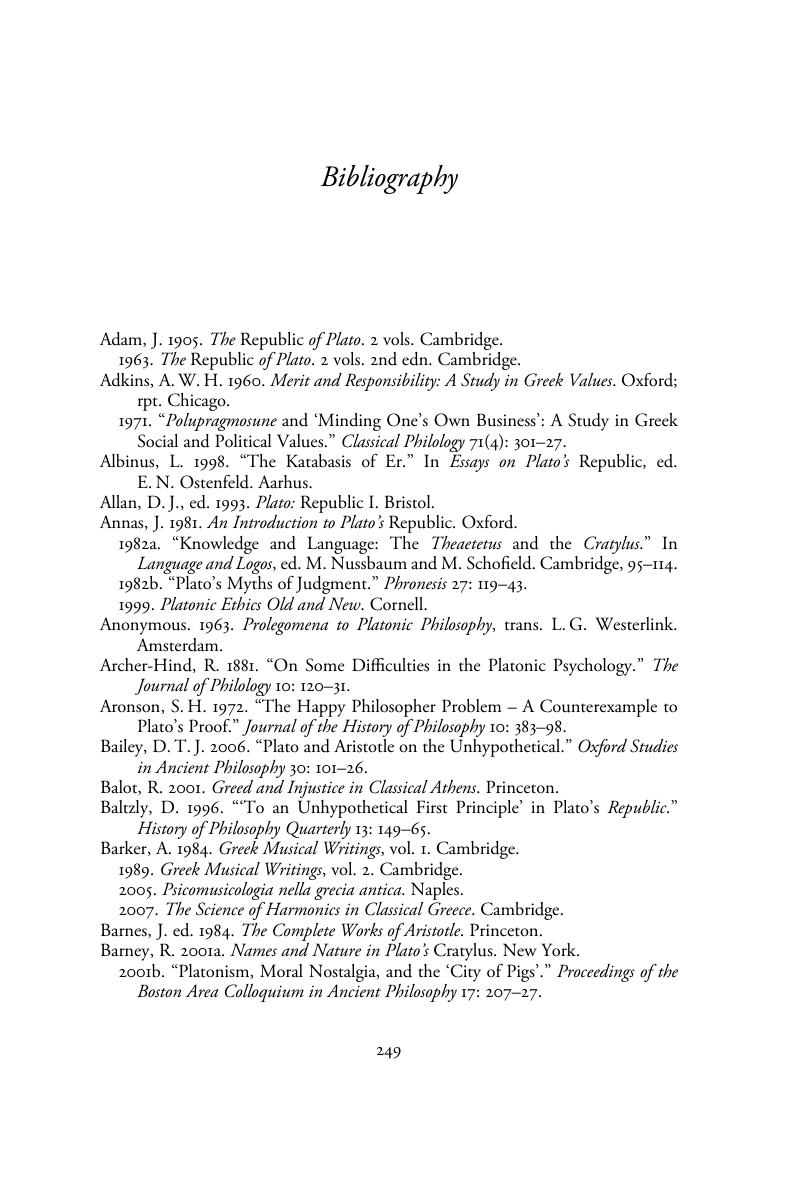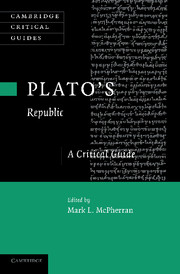Book contents
- Frontmatter
- Contents
- Acknowledgments
- List of contributors
- List of abbreviations
- Introduction
- 1 Socrates in the Republic
- 2 Platonic ring-composition and Republic 10
- 3 The Atlantis story: the Republic and the Timaeus
- 4 Ethics and politics in Socrates' defense of justice
- 5 Return to the cave
- 6 Degenerate regimes in Plato's Republic
- 7 Virtue, luck, and choice at the end of the Republic
- 8 Plato's divided soul
- 9 The meaning of “saphēneia” in Plato's Divided Line
- 10 Plato's philosophical method in the Republic: the Divided Line (510b–511d)
- 11 Blindness and reorientation: education and the acquisition of knowledge in the Republic
- 12 Music all pow'rful
- Bibliography
- Index of passages
- Index of names and subjects
- References
Bibliography
Published online by Cambridge University Press: 04 February 2011
- Frontmatter
- Contents
- Acknowledgments
- List of contributors
- List of abbreviations
- Introduction
- 1 Socrates in the Republic
- 2 Platonic ring-composition and Republic 10
- 3 The Atlantis story: the Republic and the Timaeus
- 4 Ethics and politics in Socrates' defense of justice
- 5 Return to the cave
- 6 Degenerate regimes in Plato's Republic
- 7 Virtue, luck, and choice at the end of the Republic
- 8 Plato's divided soul
- 9 The meaning of “saphēneia” in Plato's Divided Line
- 10 Plato's philosophical method in the Republic: the Divided Line (510b–511d)
- 11 Blindness and reorientation: education and the acquisition of knowledge in the Republic
- 12 Music all pow'rful
- Bibliography
- Index of passages
- Index of names and subjects
- References
Summary

- Type
- Chapter
- Information
- Plato's 'Republic'A Critical Guide, pp. 249 - 260Publisher: Cambridge University PressPrint publication year: 2010

